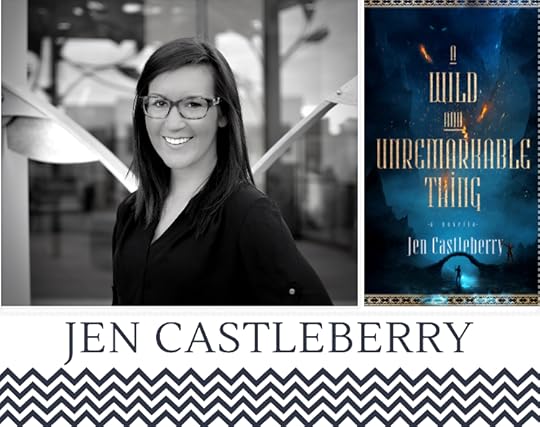10 Tips For Keeping The Story-Spark Alive During Edits!
So you’ve made it through draft one! YOU’RE AMAZING! Even if your manuscript is trash, you’re amazing. You did it. You crossed the finish line. You stuck with that trash-story and now it’s a heaping pile of COMPLETE. Well, it’s as complete as a first draft can be. Now comes the second draft. And the third, fourth, fifth. However many it takes to turn that sow’s ear into a silk purse. To turn that coal into a diamond. (To turn all those trash-cliches into brilliant turns-of-phrase!)
Well, it’s as complete as a first draft can be. Now comes the second draft. And the third, fourth, fifth. However many it takes to turn that sow’s ear into a silk purse. To turn that coal into a diamond. (To turn all those trash-cliches into brilliant turns-of-phrase!) Overwhelmingly, this next stage in the creation of a query-worthy manuscript is called tedious, frustrating, infuriating, etc. Rarely is it called fun. But I’m here to tell you that editing doesn’t have to be the pits! It doesn’t have to suck dry all your enthusiasm for the story at hand! This dreaded phase doesn’t have to be, well, dreadful.Here’s ten tips I’ve used to keep the story-spark alive during edits!1. Take a breakGive yourself some distance from the story. In the course of drafting, you’ve certainly lost all semblance of an unbiased perspective, but you can regain it – to a small but invaluable degree – by stepping away from your manuscript for a set period of time. Stop thinking about that world, those characters, and all the tangled knots you’re so keen to unravel. Let your mind rest. You’ve just done a triathlon’s-worth of writing! Your creative-muscles are just as prone to exhaustion as any other muscle in your body! Come back in a week, maybe two. Maybe in a month. Set a date and stick to it. Give your brain a little reprieve so you can jump into those edits re-energized and refreshed.
Overwhelmingly, this next stage in the creation of a query-worthy manuscript is called tedious, frustrating, infuriating, etc. Rarely is it called fun. But I’m here to tell you that editing doesn’t have to be the pits! It doesn’t have to suck dry all your enthusiasm for the story at hand! This dreaded phase doesn’t have to be, well, dreadful.Here’s ten tips I’ve used to keep the story-spark alive during edits!1. Take a breakGive yourself some distance from the story. In the course of drafting, you’ve certainly lost all semblance of an unbiased perspective, but you can regain it – to a small but invaluable degree – by stepping away from your manuscript for a set period of time. Stop thinking about that world, those characters, and all the tangled knots you’re so keen to unravel. Let your mind rest. You’ve just done a triathlon’s-worth of writing! Your creative-muscles are just as prone to exhaustion as any other muscle in your body! Come back in a week, maybe two. Maybe in a month. Set a date and stick to it. Give your brain a little reprieve so you can jump into those edits re-energized and refreshed. 2. Read!So what in the world are you supposed to do with yourself during this so-called mind-cation? Read! Read, read, read. Read books in and out of your genre, but read books that inspire you! Read your favorite books over again. Read new books. Read poetry. Read scientific articles. The only criteria is that you feel interested and engaged. Reading will nourish your creatively-sapped mind! Have you noticed that your once-lyrical phrasing has become banal? That your intuition has waned? That your well of ideas – once overflowing – has parched? You haven’t lost your gift – you just need to feed it! Head to the nearest library and eat all the books!
2. Read!So what in the world are you supposed to do with yourself during this so-called mind-cation? Read! Read, read, read. Read books in and out of your genre, but read books that inspire you! Read your favorite books over again. Read new books. Read poetry. Read scientific articles. The only criteria is that you feel interested and engaged. Reading will nourish your creatively-sapped mind! Have you noticed that your once-lyrical phrasing has become banal? That your intuition has waned? That your well of ideas – once overflowing – has parched? You haven’t lost your gift – you just need to feed it! Head to the nearest library and eat all the books! 3. Consult with BetasCan’t stand the fact that your manuscript is just sitting there, untouched? Send it to a beta reader! There’s an enormous community of readers right at your fingertips who are willing and eager to give notes on a first (or twelfth) draft! Early readers are great sources of unbiased opinion who can let you know what’s working in your draft, and (more importantly) where to focus the bulk of your edits. If you’re in your final rounds of editing, you can pay for a more professional and in-depth service to critique your work – but if you’re in first draft mode (or close to it), there are literally thousands of people who will read your MS and offer their feedback for free. (The Goodreads community is a great place to start your beta search!)
3. Consult with BetasCan’t stand the fact that your manuscript is just sitting there, untouched? Send it to a beta reader! There’s an enormous community of readers right at your fingertips who are willing and eager to give notes on a first (or twelfth) draft! Early readers are great sources of unbiased opinion who can let you know what’s working in your draft, and (more importantly) where to focus the bulk of your edits. If you’re in your final rounds of editing, you can pay for a more professional and in-depth service to critique your work – but if you’re in first draft mode (or close to it), there are literally thousands of people who will read your MS and offer their feedback for free. (The Goodreads community is a great place to start your beta search!) 4.Give Secondary and Tertiary Characters More DimensionMost likely, by the time you finish your first draft, you know your main characters (or at least your hero/heroine), like the back of your hand. But what about the rest of your cast? The histories, missions, and minute details of minor characters may not seem important to your overall plot, but you might be surprised by what these characters have to say once you give them a voice! I can’t tell you how many throw-away characters have proved themselves to be central to plot simply because I granted them an interview. Follow this rule: every character that has a name should be fully-fleshed in the mind of the author. Three-dimensional side characters – whose fullness may never be revealed but nonetheless exists – will enhance the richness and believability of your world, and are very likely to provide a wealth of new ideas to incorporate into your narrative!
4.Give Secondary and Tertiary Characters More DimensionMost likely, by the time you finish your first draft, you know your main characters (or at least your hero/heroine), like the back of your hand. But what about the rest of your cast? The histories, missions, and minute details of minor characters may not seem important to your overall plot, but you might be surprised by what these characters have to say once you give them a voice! I can’t tell you how many throw-away characters have proved themselves to be central to plot simply because I granted them an interview. Follow this rule: every character that has a name should be fully-fleshed in the mind of the author. Three-dimensional side characters – whose fullness may never be revealed but nonetheless exists – will enhance the richness and believability of your world, and are very likely to provide a wealth of new ideas to incorporate into your narrative! 5. Phone A FriendOr text. PM/DM. Have the world’s weirdest lunch-date conversation and spill all the beans about that mysterious project you’ve been working on while pretending the diners at nearby tables can’t hear you. I worked out some of the biggest plot hurdles on my WIP while on a kayaking trip with my husband. Unraveling a synopsis out loud can help you identify plot holes and inconsistencies you hadn’t noticed before, while providing a novel arena in which to tackle them. What’s more, gushing about your favorite characters, your swoon-worthy romances, and all those twists and cliffhangers that WORK feels decidedly akin to fangirling. Find someone to talk to that will make you fangirl about YOURSELF. You deserve it, and I bet you’ll be more eager than ever to jump into edits when you finish that conversation!
5. Phone A FriendOr text. PM/DM. Have the world’s weirdest lunch-date conversation and spill all the beans about that mysterious project you’ve been working on while pretending the diners at nearby tables can’t hear you. I worked out some of the biggest plot hurdles on my WIP while on a kayaking trip with my husband. Unraveling a synopsis out loud can help you identify plot holes and inconsistencies you hadn’t noticed before, while providing a novel arena in which to tackle them. What’s more, gushing about your favorite characters, your swoon-worthy romances, and all those twists and cliffhangers that WORK feels decidedly akin to fangirling. Find someone to talk to that will make you fangirl about YOURSELF. You deserve it, and I bet you’ll be more eager than ever to jump into edits when you finish that conversation! 6. Speaking of Fangirling...Write Fan-FictionLet me clarify – write fan-fiction with your own characters. One of the most enjoyable parts of editing, for me at least, is indulging wild new ideas as they come to me, with utter abandon. I used to hold tight to the structure of my narrative (particularly if it followed a firm outline) and toss any deviating idea into the trash. It’s scary to trade something so-so, but solid, for something exciting but uncertain. To get around my feelings of insecurity, I started treating wild, new ideas for a MS as fan-fiction exercises. I’d open a new document, copy-paste my original there, and then indulge whatever bonkers-fantasy I’d concocted with a no-holds-barred attitude. If I made a mess of things, it didn’t matter – the original was still waiting for me, safely squared away. Let me tell you, more often than not – WAY more often – these bananas ideas made their way into the final MS, improving it beyond measure, all because I was brave enough to give them the time of day. At the very least, they enhanced my understanding of world and character. Even if you completely pitch everything about these endeavors, they’re enjoyable! They get you hype about the bones of your story, and they work your creative muscles. Think jazzercize for your brain![Here's a video of SJM talking about writing fan-fiction with her ACOTAR characters]
6. Speaking of Fangirling...Write Fan-FictionLet me clarify – write fan-fiction with your own characters. One of the most enjoyable parts of editing, for me at least, is indulging wild new ideas as they come to me, with utter abandon. I used to hold tight to the structure of my narrative (particularly if it followed a firm outline) and toss any deviating idea into the trash. It’s scary to trade something so-so, but solid, for something exciting but uncertain. To get around my feelings of insecurity, I started treating wild, new ideas for a MS as fan-fiction exercises. I’d open a new document, copy-paste my original there, and then indulge whatever bonkers-fantasy I’d concocted with a no-holds-barred attitude. If I made a mess of things, it didn’t matter – the original was still waiting for me, safely squared away. Let me tell you, more often than not – WAY more often – these bananas ideas made their way into the final MS, improving it beyond measure, all because I was brave enough to give them the time of day. At the very least, they enhanced my understanding of world and character. Even if you completely pitch everything about these endeavors, they’re enjoyable! They get you hype about the bones of your story, and they work your creative muscles. Think jazzercize for your brain![Here's a video of SJM talking about writing fan-fiction with her ACOTAR characters] 7. Play With The Technical AspectsTake a couple days to rework your first-person perspective into a third-person, or your past-tense into a present-tense. Play around. You might find you have a knack for a totally different style of narrative. At the very least, reworking each sentence to fit a new technical structure gives you the opportunity to revisit the manuscript on an almost cellular scale. Have you ever read a book that felt entirely magical – every single sentence flowing lyrically into the next? That doesn’t happen in a first draft, and it doesn’t happen during large-scale edits. That’s the nitty-gritty, friends. And on the days when you’re feeling particularly inspired, those tiny brushstrokes are fantastically satisfying to make.
7. Play With The Technical AspectsTake a couple days to rework your first-person perspective into a third-person, or your past-tense into a present-tense. Play around. You might find you have a knack for a totally different style of narrative. At the very least, reworking each sentence to fit a new technical structure gives you the opportunity to revisit the manuscript on an almost cellular scale. Have you ever read a book that felt entirely magical – every single sentence flowing lyrically into the next? That doesn’t happen in a first draft, and it doesn’t happen during large-scale edits. That’s the nitty-gritty, friends. And on the days when you’re feeling particularly inspired, those tiny brushstrokes are fantastically satisfying to make. 8. Read Your MS Three Different WaysRead it on your computer screen. Read it on paper. And read it aloud. You’ll be surprised what sorts of things you pick up on just by examining the MS in three different ways.
8. Read Your MS Three Different WaysRead it on your computer screen. Read it on paper. And read it aloud. You’ll be surprised what sorts of things you pick up on just by examining the MS in three different ways. 9. Find A Brand New Place To WriteGet out of your sweats and hit the library, or the coffee shop or a café or a park. Or, if you always clack away at your keyboard while sipping Starbucks in a pair of stilettos (right on!), stack those pillows and plan to spend the day writing in bed. Stir up your workspace, and you’ll stir up the creative juices inside your head!
9. Find A Brand New Place To WriteGet out of your sweats and hit the library, or the coffee shop or a café or a park. Or, if you always clack away at your keyboard while sipping Starbucks in a pair of stilettos (right on!), stack those pillows and plan to spend the day writing in bed. Stir up your workspace, and you’ll stir up the creative juices inside your head! 10. Have Fun!Last, but not least, remember that writing is FUN! I promise it’s fun! It sure doesn’t pay a lot (usually), so why do it unless you love it? Shrug off that pressure you’ve been putting on your own shoulders. Say, “I got this!” (Seriously. Say it. Out loud. To yourself. Just do it.) Smile. Sing. Squeal. Give yourself a round of applause when you finally fix that pesky chapter. Better yet, do a little dance in the kitchen. Post something self-congratulatory on Facebook. Call your mom. Call your bestie. (She thinks you’re a nerd but she loves you anyway.) If it’s a chore to write, it’s going to be a chore to read. You’ve got a beginning, middle, and end. Now you’re well on your way to a masterpiece. That’s exciting, so be excited!
10. Have Fun!Last, but not least, remember that writing is FUN! I promise it’s fun! It sure doesn’t pay a lot (usually), so why do it unless you love it? Shrug off that pressure you’ve been putting on your own shoulders. Say, “I got this!” (Seriously. Say it. Out loud. To yourself. Just do it.) Smile. Sing. Squeal. Give yourself a round of applause when you finally fix that pesky chapter. Better yet, do a little dance in the kitchen. Post something self-congratulatory on Facebook. Call your mom. Call your bestie. (She thinks you’re a nerd but she loves you anyway.) If it’s a chore to write, it’s going to be a chore to read. You’ve got a beginning, middle, and end. Now you’re well on your way to a masterpiece. That’s exciting, so be excited! What tips do YOU have for keeping the spark of a story alive? Share them in the comments below!Happy editing!-J
What tips do YOU have for keeping the spark of a story alive? Share them in the comments below!Happy editing!-J Jen Castleberry is the author of A Wild and Unremarkable Thing, a dragon-slaying Fantasy novella which readers have called poetic, enchanting, and laugh-out-loud funny! You can snag your copy here, or wherever books are sold!
Jen Castleberry is the author of A Wild and Unremarkable Thing, a dragon-slaying Fantasy novella which readers have called poetic, enchanting, and laugh-out-loud funny! You can snag your copy here, or wherever books are sold!
 Well, it’s as complete as a first draft can be. Now comes the second draft. And the third, fourth, fifth. However many it takes to turn that sow’s ear into a silk purse. To turn that coal into a diamond. (To turn all those trash-cliches into brilliant turns-of-phrase!)
Well, it’s as complete as a first draft can be. Now comes the second draft. And the third, fourth, fifth. However many it takes to turn that sow’s ear into a silk purse. To turn that coal into a diamond. (To turn all those trash-cliches into brilliant turns-of-phrase!) Overwhelmingly, this next stage in the creation of a query-worthy manuscript is called tedious, frustrating, infuriating, etc. Rarely is it called fun. But I’m here to tell you that editing doesn’t have to be the pits! It doesn’t have to suck dry all your enthusiasm for the story at hand! This dreaded phase doesn’t have to be, well, dreadful.Here’s ten tips I’ve used to keep the story-spark alive during edits!1. Take a breakGive yourself some distance from the story. In the course of drafting, you’ve certainly lost all semblance of an unbiased perspective, but you can regain it – to a small but invaluable degree – by stepping away from your manuscript for a set period of time. Stop thinking about that world, those characters, and all the tangled knots you’re so keen to unravel. Let your mind rest. You’ve just done a triathlon’s-worth of writing! Your creative-muscles are just as prone to exhaustion as any other muscle in your body! Come back in a week, maybe two. Maybe in a month. Set a date and stick to it. Give your brain a little reprieve so you can jump into those edits re-energized and refreshed.
Overwhelmingly, this next stage in the creation of a query-worthy manuscript is called tedious, frustrating, infuriating, etc. Rarely is it called fun. But I’m here to tell you that editing doesn’t have to be the pits! It doesn’t have to suck dry all your enthusiasm for the story at hand! This dreaded phase doesn’t have to be, well, dreadful.Here’s ten tips I’ve used to keep the story-spark alive during edits!1. Take a breakGive yourself some distance from the story. In the course of drafting, you’ve certainly lost all semblance of an unbiased perspective, but you can regain it – to a small but invaluable degree – by stepping away from your manuscript for a set period of time. Stop thinking about that world, those characters, and all the tangled knots you’re so keen to unravel. Let your mind rest. You’ve just done a triathlon’s-worth of writing! Your creative-muscles are just as prone to exhaustion as any other muscle in your body! Come back in a week, maybe two. Maybe in a month. Set a date and stick to it. Give your brain a little reprieve so you can jump into those edits re-energized and refreshed. 2. Read!So what in the world are you supposed to do with yourself during this so-called mind-cation? Read! Read, read, read. Read books in and out of your genre, but read books that inspire you! Read your favorite books over again. Read new books. Read poetry. Read scientific articles. The only criteria is that you feel interested and engaged. Reading will nourish your creatively-sapped mind! Have you noticed that your once-lyrical phrasing has become banal? That your intuition has waned? That your well of ideas – once overflowing – has parched? You haven’t lost your gift – you just need to feed it! Head to the nearest library and eat all the books!
2. Read!So what in the world are you supposed to do with yourself during this so-called mind-cation? Read! Read, read, read. Read books in and out of your genre, but read books that inspire you! Read your favorite books over again. Read new books. Read poetry. Read scientific articles. The only criteria is that you feel interested and engaged. Reading will nourish your creatively-sapped mind! Have you noticed that your once-lyrical phrasing has become banal? That your intuition has waned? That your well of ideas – once overflowing – has parched? You haven’t lost your gift – you just need to feed it! Head to the nearest library and eat all the books! 3. Consult with BetasCan’t stand the fact that your manuscript is just sitting there, untouched? Send it to a beta reader! There’s an enormous community of readers right at your fingertips who are willing and eager to give notes on a first (or twelfth) draft! Early readers are great sources of unbiased opinion who can let you know what’s working in your draft, and (more importantly) where to focus the bulk of your edits. If you’re in your final rounds of editing, you can pay for a more professional and in-depth service to critique your work – but if you’re in first draft mode (or close to it), there are literally thousands of people who will read your MS and offer their feedback for free. (The Goodreads community is a great place to start your beta search!)
3. Consult with BetasCan’t stand the fact that your manuscript is just sitting there, untouched? Send it to a beta reader! There’s an enormous community of readers right at your fingertips who are willing and eager to give notes on a first (or twelfth) draft! Early readers are great sources of unbiased opinion who can let you know what’s working in your draft, and (more importantly) where to focus the bulk of your edits. If you’re in your final rounds of editing, you can pay for a more professional and in-depth service to critique your work – but if you’re in first draft mode (or close to it), there are literally thousands of people who will read your MS and offer their feedback for free. (The Goodreads community is a great place to start your beta search!) 4.Give Secondary and Tertiary Characters More DimensionMost likely, by the time you finish your first draft, you know your main characters (or at least your hero/heroine), like the back of your hand. But what about the rest of your cast? The histories, missions, and minute details of minor characters may not seem important to your overall plot, but you might be surprised by what these characters have to say once you give them a voice! I can’t tell you how many throw-away characters have proved themselves to be central to plot simply because I granted them an interview. Follow this rule: every character that has a name should be fully-fleshed in the mind of the author. Three-dimensional side characters – whose fullness may never be revealed but nonetheless exists – will enhance the richness and believability of your world, and are very likely to provide a wealth of new ideas to incorporate into your narrative!
4.Give Secondary and Tertiary Characters More DimensionMost likely, by the time you finish your first draft, you know your main characters (or at least your hero/heroine), like the back of your hand. But what about the rest of your cast? The histories, missions, and minute details of minor characters may not seem important to your overall plot, but you might be surprised by what these characters have to say once you give them a voice! I can’t tell you how many throw-away characters have proved themselves to be central to plot simply because I granted them an interview. Follow this rule: every character that has a name should be fully-fleshed in the mind of the author. Three-dimensional side characters – whose fullness may never be revealed but nonetheless exists – will enhance the richness and believability of your world, and are very likely to provide a wealth of new ideas to incorporate into your narrative! 5. Phone A FriendOr text. PM/DM. Have the world’s weirdest lunch-date conversation and spill all the beans about that mysterious project you’ve been working on while pretending the diners at nearby tables can’t hear you. I worked out some of the biggest plot hurdles on my WIP while on a kayaking trip with my husband. Unraveling a synopsis out loud can help you identify plot holes and inconsistencies you hadn’t noticed before, while providing a novel arena in which to tackle them. What’s more, gushing about your favorite characters, your swoon-worthy romances, and all those twists and cliffhangers that WORK feels decidedly akin to fangirling. Find someone to talk to that will make you fangirl about YOURSELF. You deserve it, and I bet you’ll be more eager than ever to jump into edits when you finish that conversation!
5. Phone A FriendOr text. PM/DM. Have the world’s weirdest lunch-date conversation and spill all the beans about that mysterious project you’ve been working on while pretending the diners at nearby tables can’t hear you. I worked out some of the biggest plot hurdles on my WIP while on a kayaking trip with my husband. Unraveling a synopsis out loud can help you identify plot holes and inconsistencies you hadn’t noticed before, while providing a novel arena in which to tackle them. What’s more, gushing about your favorite characters, your swoon-worthy romances, and all those twists and cliffhangers that WORK feels decidedly akin to fangirling. Find someone to talk to that will make you fangirl about YOURSELF. You deserve it, and I bet you’ll be more eager than ever to jump into edits when you finish that conversation! 6. Speaking of Fangirling...Write Fan-FictionLet me clarify – write fan-fiction with your own characters. One of the most enjoyable parts of editing, for me at least, is indulging wild new ideas as they come to me, with utter abandon. I used to hold tight to the structure of my narrative (particularly if it followed a firm outline) and toss any deviating idea into the trash. It’s scary to trade something so-so, but solid, for something exciting but uncertain. To get around my feelings of insecurity, I started treating wild, new ideas for a MS as fan-fiction exercises. I’d open a new document, copy-paste my original there, and then indulge whatever bonkers-fantasy I’d concocted with a no-holds-barred attitude. If I made a mess of things, it didn’t matter – the original was still waiting for me, safely squared away. Let me tell you, more often than not – WAY more often – these bananas ideas made their way into the final MS, improving it beyond measure, all because I was brave enough to give them the time of day. At the very least, they enhanced my understanding of world and character. Even if you completely pitch everything about these endeavors, they’re enjoyable! They get you hype about the bones of your story, and they work your creative muscles. Think jazzercize for your brain![Here's a video of SJM talking about writing fan-fiction with her ACOTAR characters]
6. Speaking of Fangirling...Write Fan-FictionLet me clarify – write fan-fiction with your own characters. One of the most enjoyable parts of editing, for me at least, is indulging wild new ideas as they come to me, with utter abandon. I used to hold tight to the structure of my narrative (particularly if it followed a firm outline) and toss any deviating idea into the trash. It’s scary to trade something so-so, but solid, for something exciting but uncertain. To get around my feelings of insecurity, I started treating wild, new ideas for a MS as fan-fiction exercises. I’d open a new document, copy-paste my original there, and then indulge whatever bonkers-fantasy I’d concocted with a no-holds-barred attitude. If I made a mess of things, it didn’t matter – the original was still waiting for me, safely squared away. Let me tell you, more often than not – WAY more often – these bananas ideas made their way into the final MS, improving it beyond measure, all because I was brave enough to give them the time of day. At the very least, they enhanced my understanding of world and character. Even if you completely pitch everything about these endeavors, they’re enjoyable! They get you hype about the bones of your story, and they work your creative muscles. Think jazzercize for your brain![Here's a video of SJM talking about writing fan-fiction with her ACOTAR characters] 7. Play With The Technical AspectsTake a couple days to rework your first-person perspective into a third-person, or your past-tense into a present-tense. Play around. You might find you have a knack for a totally different style of narrative. At the very least, reworking each sentence to fit a new technical structure gives you the opportunity to revisit the manuscript on an almost cellular scale. Have you ever read a book that felt entirely magical – every single sentence flowing lyrically into the next? That doesn’t happen in a first draft, and it doesn’t happen during large-scale edits. That’s the nitty-gritty, friends. And on the days when you’re feeling particularly inspired, those tiny brushstrokes are fantastically satisfying to make.
7. Play With The Technical AspectsTake a couple days to rework your first-person perspective into a third-person, or your past-tense into a present-tense. Play around. You might find you have a knack for a totally different style of narrative. At the very least, reworking each sentence to fit a new technical structure gives you the opportunity to revisit the manuscript on an almost cellular scale. Have you ever read a book that felt entirely magical – every single sentence flowing lyrically into the next? That doesn’t happen in a first draft, and it doesn’t happen during large-scale edits. That’s the nitty-gritty, friends. And on the days when you’re feeling particularly inspired, those tiny brushstrokes are fantastically satisfying to make. 8. Read Your MS Three Different WaysRead it on your computer screen. Read it on paper. And read it aloud. You’ll be surprised what sorts of things you pick up on just by examining the MS in three different ways.
8. Read Your MS Three Different WaysRead it on your computer screen. Read it on paper. And read it aloud. You’ll be surprised what sorts of things you pick up on just by examining the MS in three different ways. 9. Find A Brand New Place To WriteGet out of your sweats and hit the library, or the coffee shop or a café or a park. Or, if you always clack away at your keyboard while sipping Starbucks in a pair of stilettos (right on!), stack those pillows and plan to spend the day writing in bed. Stir up your workspace, and you’ll stir up the creative juices inside your head!
9. Find A Brand New Place To WriteGet out of your sweats and hit the library, or the coffee shop or a café or a park. Or, if you always clack away at your keyboard while sipping Starbucks in a pair of stilettos (right on!), stack those pillows and plan to spend the day writing in bed. Stir up your workspace, and you’ll stir up the creative juices inside your head! 10. Have Fun!Last, but not least, remember that writing is FUN! I promise it’s fun! It sure doesn’t pay a lot (usually), so why do it unless you love it? Shrug off that pressure you’ve been putting on your own shoulders. Say, “I got this!” (Seriously. Say it. Out loud. To yourself. Just do it.) Smile. Sing. Squeal. Give yourself a round of applause when you finally fix that pesky chapter. Better yet, do a little dance in the kitchen. Post something self-congratulatory on Facebook. Call your mom. Call your bestie. (She thinks you’re a nerd but she loves you anyway.) If it’s a chore to write, it’s going to be a chore to read. You’ve got a beginning, middle, and end. Now you’re well on your way to a masterpiece. That’s exciting, so be excited!
10. Have Fun!Last, but not least, remember that writing is FUN! I promise it’s fun! It sure doesn’t pay a lot (usually), so why do it unless you love it? Shrug off that pressure you’ve been putting on your own shoulders. Say, “I got this!” (Seriously. Say it. Out loud. To yourself. Just do it.) Smile. Sing. Squeal. Give yourself a round of applause when you finally fix that pesky chapter. Better yet, do a little dance in the kitchen. Post something self-congratulatory on Facebook. Call your mom. Call your bestie. (She thinks you’re a nerd but she loves you anyway.) If it’s a chore to write, it’s going to be a chore to read. You’ve got a beginning, middle, and end. Now you’re well on your way to a masterpiece. That’s exciting, so be excited! What tips do YOU have for keeping the spark of a story alive? Share them in the comments below!Happy editing!-J
What tips do YOU have for keeping the spark of a story alive? Share them in the comments below!Happy editing!-J Jen Castleberry is the author of A Wild and Unremarkable Thing, a dragon-slaying Fantasy novella which readers have called poetic, enchanting, and laugh-out-loud funny! You can snag your copy here, or wherever books are sold!
Jen Castleberry is the author of A Wild and Unremarkable Thing, a dragon-slaying Fantasy novella which readers have called poetic, enchanting, and laugh-out-loud funny! You can snag your copy here, or wherever books are sold!
Published on November 17, 2017 08:35
No comments have been added yet.
Jen Castleberry's Blog
- Jen Castleberry's profile
- 181 followers
Jen Castleberry isn't a Goodreads Author
(yet),
but they
do have a blog,
so here are some recent posts imported from
their feed.



